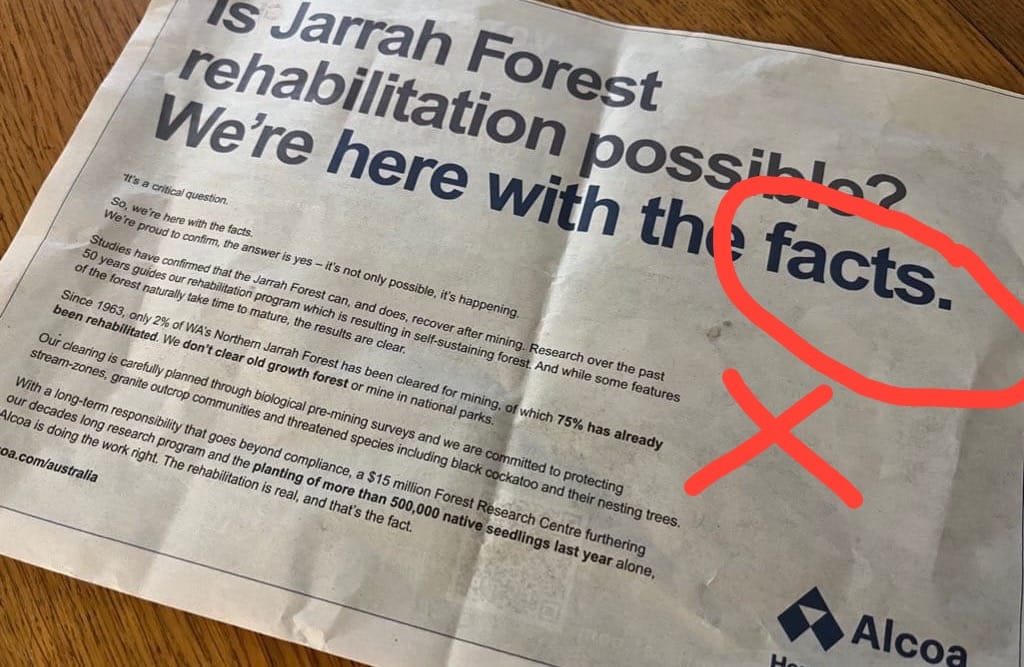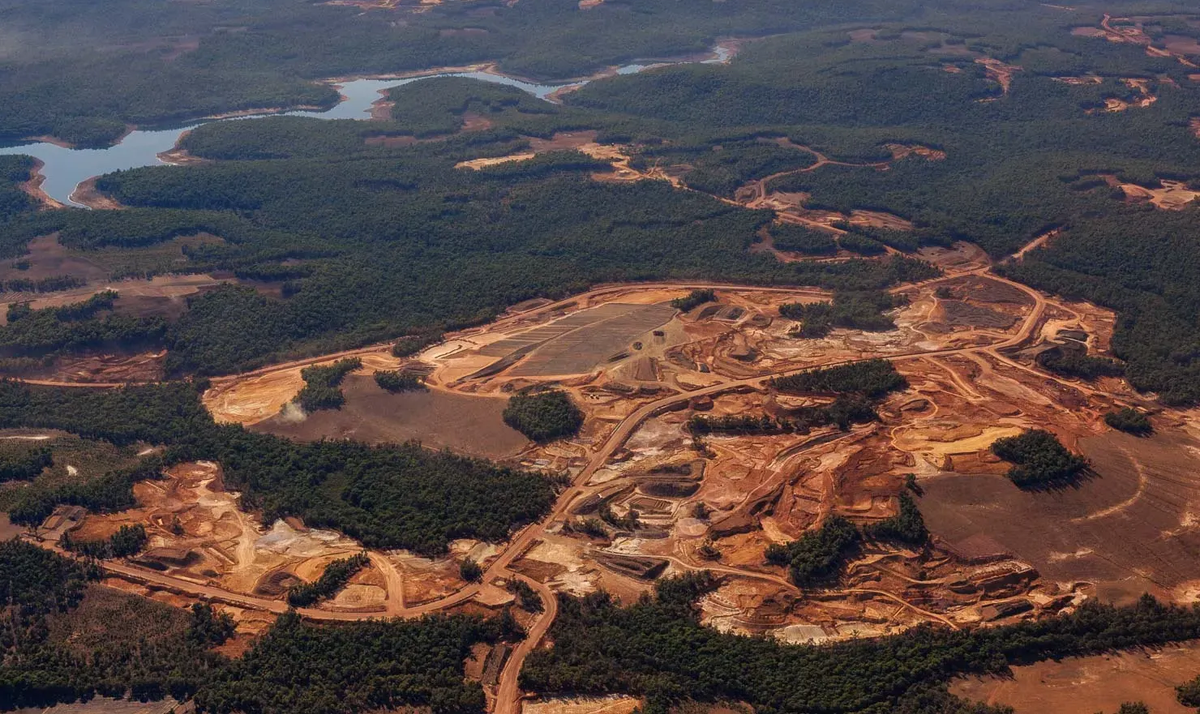WA environmental watchdog backs Kimberley fracking
The green light for Black Mountain Energy comes just months after Federal experts said its environmental risk assessment was "limited and disjointed" and reached "largely unsupported" conclusions.
Alcoa chief executive Bill Oplinger will look to shore up state government support for his vital WA mining that is facing public scrutiny for the first time.

The US miner's plans to strip mine the jarrah forest have attracted more than 59,000 submissions to WA's independent environment watchdog amid a widening public backlash against its activities.
The large volume of feedback, with more than 10 per cent of submissions being singular documents, not proformas, is understood to be the highest number of submissions ever received by the WA Environmental Protection Authority (EPA).
The public focus on Alcoa in WA has grown in the past two years, with revelations that its mining threatens Perth's water supply, it has failed to complete any forest rehabilitation, and, without permission, it piped toxic PFAS over a drinking water dam.
This week, Alcoa chief executive Bill Oplinger will visit Perth and meet with WA Premier Roger Cook.
Oplinger's visit comes a week after two more revelations about Alcoa's mining in the jarrah forest.
A report by global engineering consultancy GHD for Alcoa concluded that there were 21 high-risk pathways through which its mining operations could contaminate Perth's water supply.
Additionally, Alcoa was found to be non-compliant with conditions imposed on its mining operations, including drilling too close to trees used by endangered cockatoos for nesting and failing to complete vital plans to make its mining activities safer for the environment.

It is the first time Alcoa's mining, which has already removed 280 square kilometres of jarrah forest, has been subject to an independent and public environmental review.
For the past sixty years, its mining operations have been exempt from regular environmental laws and instead have been approved by a committee of bureaucrats led by the department responsible for economic development.
A spokeswoman for the Premier said his government remained committed to moving Alcoa to a modern approvals framework under the Environmental Protection Act and had implemented strict controls in the meantime.
'The Premier will reiterate there is an expectation that Alcoa meets its environmental obligations," she said of his scheduled meeting wth Oplinger.
EPA chair Darren Walsh said the authority would consolidate the submissions into a summary for Alcoa to respond to. It would publish those responses before delivering its report on Alcoa's current and planned mining to the environment minister.
Walsh said he expected the EPA would finish assessing Alcoa's proposals in the first half of 2026.
The public can then lodge appeals against the EPA's recommendations, which the Environment Minister, Matthew Swinbourn, will consider before he makes a decision.
Greens upper house member and environment spokeswoman Jess Beckerling said the number of submissions reflected an overwhelming opposition to Alcoa's strip mining of the jarrah forest.
"Alcoa's plans would destroy another 11,458 hectares of forest, which cannot be regrown, risk our water and the extinction of Black Cockatoos, and add 1.3 billion tonnes of emissions to the atmosphere," she said.
"It's an absolute no-brainer that it cannot go ahead.
"There is only one appropriate course of action for the EPA and the Cook Government to take, and that is to heed the evidence and the overwhelming community opposition and wind Alcoa up."
The WA Labor government may take little notice of the Greens, but will be sensitive to wider community concerns, evidenced by the number of submissions and recently, unusually strong moves by local governments.

WA Forest Alliance campaigner Jason Fowler said the community had made its opposition clear.
"Further destruction of the jarrah forest is unacceptable, and maintaining safe drinking water and public access to our forest must be upheld," he said.
"The WA government should listen to the community, refuse Alcoa's plans and start planning for a just transition for affected workers."
In the past few weeks, the Cities of Kalamunda and Armadale, and the shires of Mundaring and Serpentine-Jarrahdale have all voted unanimously against Alcoa expanding its mining operations.
The Pittsburgh-headquartered firm depends on its distant WA operation for more than 70 per cent of its total production of bauxite and alumina. Until Alcoa receives approval to move into new areas of the jarrah forest, it is returning to previously mined areas to extract lower-grade ore that it had rejected the first time.
It is forcing the company to mine more ore but produce less alumina, reducing the profitability of its WA operation, so investment analysts have closely watched the approval schedule.
A year ago, the EPA had planned to publish the environmental review documents in January, and Alcoa expected the environment minister to make a decision in the first quarter of 2026.
However, Alcoa did not supply the review documents until May, and in the past few days, Alcoa has removed any estimate of when it will receive approval from its website.

Alcoa chief executive Bill Oplinger said in July that even if approval for a mining expansion was not received until mid-2027, the company could keep its Pinjarra refinery operating.
Oplinger is now in Australia and will meet state and federal government ministers to discuss its WA mining and alumina refining and its aluminium smelter in Victoria, a company spokesman said.
In meetings with governments, Oplinger is likely to stress the 4000 employees it has in WA and the importance of aluminium to many clean energy technologies.
The Alcoa spokesman said the company appreciated the level of interest in the important process of public consultation.
"Community participation strengthens the assessment process, and we look forward to receiving a summary of the comments from the EPA," he said.
"Alcoa respects that we operate in areas of high value to the community and commits to undertaking a comprehensive review of the feedback. We will prepare responses in a thorough and timely manner."
The State Government has been asked if Premier Roger Cook will meet Oplinger.
UPDATE: 27 August, 2PM - Comments from Premier Roger Cook added.
All the info and a bit of comment on WA energy, industry and climate every Friday